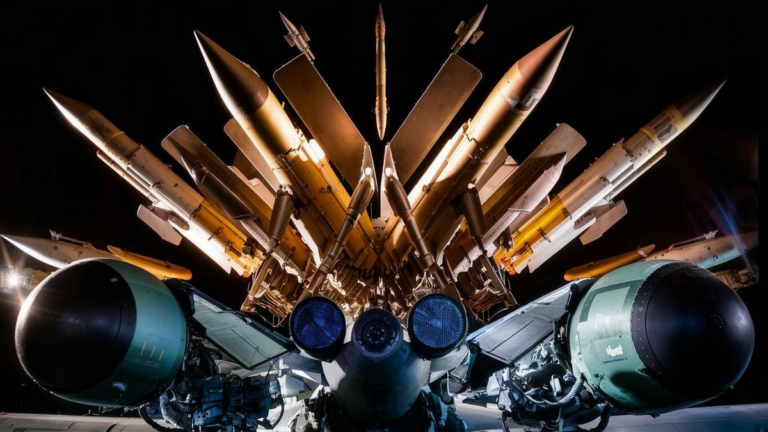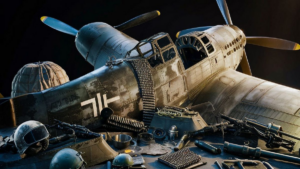Considering a career in aircraft armament systems can be an enticing prospect for those with a passion for aviation and a knack for technical precision. This specialized field offers unique challenges and opportunities for individuals seeking a career that combines engineering, technology, and aviation.
Job Overview
Aircraft armament systems technicians are responsible for installing, maintaining, and repairing weapons systems on various aircraft, including fighter jets, helicopters, and bombers. They ensure that these systems are in optimal condition, adhering to strict safety standards and regulations.
Technicians in this field work closely with engineers and military personnel to integrate and test new weapons systems, troubleshoot technical issues, and conduct routine inspections and maintenance. Their role is crucial in ensuring the effectiveness and safety of military aircraft during combat missions and training exercises.
Skills Required
Success in aircraft armament systems requires a blend of technical expertise, problem-solving skills, and attention to detail. Technicians must possess a strong understanding of electronics, mechanical systems, and aircraft structures.
Furthermore, they must be proficient in reading technical manuals, interpreting schematics, and using specialized tools and equipment. Attention to detail is paramount in this field, as even minor errors can have serious consequences.
Career Opportunities
Individuals pursuing a career in aircraft armament systems can find employment in various sectors, including the military, defense contractors, and aerospace companies. With the continuous advancement of technology, there is a growing demand for skilled technicians to support the development and maintenance of advanced weapon systems.
Furthermore, the skills acquired in this field are transferable to other aerospace and defense-related occupations, providing opportunities for career advancement and specialization.
Challenges
While a career in aircraft armament systems can be rewarding, it also comes with its challenges. Technicians may be required to work in high-stress environments, often under tight deadlines and stringent safety protocols.
Moreover, the nature of the work may involve exposure to hazardous materials and potentially dangerous situations, requiring a strong commitment to safety and professionalism.
In conclusion, a career in aircraft armament systems offers a unique and rewarding opportunity for individuals with a passion for aviation and technical expertise. With the increasing demand for skilled technicians in this field, there are ample opportunities for career growth and advancement.
While the challenges may be significant, the sense of pride and fulfillment that comes from supporting critical military operations and ensuring the safety of aircraft and personnel make it a worthwhile endeavor for those up to the task.
Training and Education
To excel in the field of aircraft armament systems, individuals typically require specialized training and education. Many technicians pursue formal education programs in aviation maintenance technology or related fields.
These programs often include coursework in electronics, avionics, aircraft systems, and weapons integration. Additionally, hands-on training and apprenticeships provide valuable practical experience, allowing technicians to familiarize themselves with various aircraft platforms and weapon systems.
Professional Certifications
Obtaining professional certifications can enhance career prospects for aircraft armament systems technicians. Certifications such as the National Center for Aerospace & Transportation Technologies (NCATT) Aircraft Electronics Technician (AET) certification demonstrate proficiency in avionics systems and electronics, which are integral to aircraft armament systems.
Similarly, certifications from weapon system manufacturers or military agencies may be required or preferred for certain positions within the field.
Frequently Asked Questions
1. What are the typical work environments for aircraft armament systems technicians?
- Technicians may work in various environments, including military bases, aerospace manufacturing facilities, or maintenance depots.
- They may also deploy with military units to provide on-site support during training exercises or combat operations.
2. Is prior military experience necessary for a career in aircraft armament systems?
- While prior military experience can be beneficial, it is not always necessary.
- Many technicians enter the field through civilian education and training programs.
3. What are some common advancement opportunities within the field?
- Experienced technicians may advance to supervisory or managerial roles, overseeing teams of technicians or entire maintenance operations.
- They may also specialize in specific aircraft platforms or weapon systems, becoming subject matter experts in their respective areas.
| Pros | Cons |
|---|---|
| Opportunities for career advancement | High-stress work environments |
| Integration of technology and aviation | Potential exposure to hazardous materials |
| Contribution to critical military operations | Tight deadlines and stringent safety protocols |
See also:






